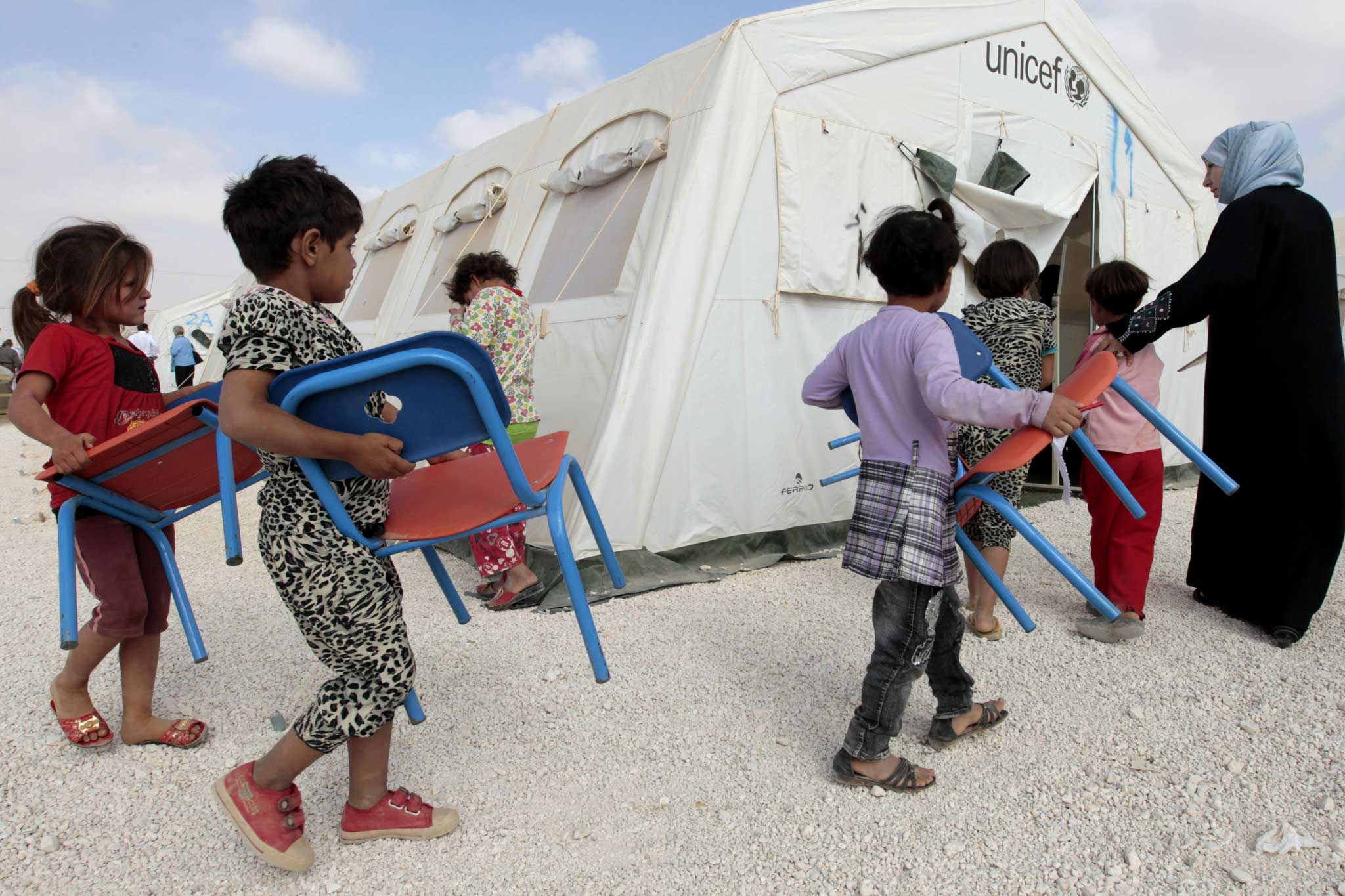Syrian refugees would be getting an education if the West actually delivered on its pledges
This is the simplest - and one of the cheapest - fixes for a dire situation

Your support helps us to tell the story
From reproductive rights to climate change to Big Tech, The Independent is on the ground when the story is developing. Whether it's investigating the financials of Elon Musk's pro-Trump PAC or producing our latest documentary, 'The A Word', which shines a light on the American women fighting for reproductive rights, we know how important it is to parse out the facts from the messaging.
At such a critical moment in US history, we need reporters on the ground. Your donation allows us to keep sending journalists to speak to both sides of the story.
The Independent is trusted by Americans across the entire political spectrum. And unlike many other quality news outlets, we choose not to lock Americans out of our reporting and analysis with paywalls. We believe quality journalism should be available to everyone, paid for by those who can afford it.
Your support makes all the difference.One of the silent casualties of the war in Syria is education. Despite all the outpourings of international sympathy for Syria’s children there has been a lack of hard cash from international donors. Yet the sums involved are pathetically small beer for Western Governments. The UN says that just £145m is required for Syrian refugee education. If Governments had done what they promised, there would be no problem, but less than a quarter of pledged funds have actually been paid.
A lack of funding means that aid agencies have been forced to cut monthly payments for thousands of refugees, which leaves those living in countries like Jordan without free education unable to afford the school fees. In refugee camps, it also means that education is badly overstretched. For instance in Jordan’s huge Za’atari camp class sizes of 80 - 120 are common.
Improving poor teacher pay in the camps, hiring more of them, and giving them better training, would improve the nightmarish conditions of overcrowded classrooms and language barriers that they face every day. Given the stretched resources of the host governments, this funding can only come from international donors.
The experience of conflict zones from Rwanda to Bosnia is that those in secondary and vocational education tend to see the greatest disruption to their education. Refugee teenagers are often forced to work since their families, who have spent all their savings on the journey, can no longer support them. Education for older teenagers remains a Cinderella cause - donors tend to focus slim resources on the primary years. For the future of Syria it is essential that this generation of young people are given skills to help rebuild the country and to avoid the hopelessness that could see them sucked into violent extremism.
The international community also needs to give financial support to countries such as Lebanon that are becoming overwhelmed by the pressures placed on their schools by the influx of newcomers. This can have a negative impact on the Lebanese children in class, who can be held back while Syrian children, who speak only Arabic, take class-time to learn rudimentary English or French. To aid integration, more international funding needs to be given to ensure that the settled population in refugee host countries does not see a decline in education quality.
This is already happening in some countries. UN agencies, the World Bank and bilateral donors have agreed to provide 200,000 free school places in Lebanon for Syrian refugees, covering the cost of tuition, schoolbooks and basic stationary, relieving some of the pressure on the public school system. This kind of support must be extended to Turkey and Jordan, where the education system is being stretched by the crisis.
Funding is not only required in the classroom. Many Syrians already have qualifications that are not recognized outside the country. Years of study and knowledge count for nothing in many of the countries to which they have fled. There needs to be a concerted effort to calibrate what equivalent of these qualifications is in their new countries. Those who fled with barely the clothes on their backs often do not have the necessary paperwork to prove their qualifications.
Resources need to be invested in a system that, where possible, collects the available data from Syria – and allows schools, universities and employers to verify which qualifications an individual holds.
Many of the problems facing young Syrian refugees are hard to fix – from the physical and mental scars of war to the sense of cultural dislocation that comes from having to leave their homes. But finding the comparatively small sum needed to provide decent education should be simple – particularly when vast sums are being allocated to help the refugees that make it to European countries. Germany alone has budgeted £4.7bn to help predominantly Syrian asylum seekers in the country.
The UN should convene an emergency summit to discuss the educational crisis affecting Syrian refugees – in which international leaders would come under pressure to raise the necessary funds. And deliver them in full this time.
Vikas Pota is Chief Executive of the Varkey Foundation
Join our commenting forum
Join thought-provoking conversations, follow other Independent readers and see their replies
Comments